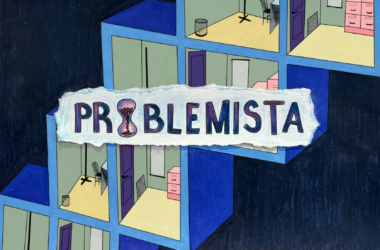 Adam Scotti
Adam Scotti Adam Scotti
Adam ScottiMost little boys dream of making a crowd go wild, maybe with a game-winning grand slam in the World Series or a goal in the Stanley Cup final. For Phil Sly, a U3 vocal performance student at McGill, something similar actually happened on March 13. He was one of five winners of the Metropolitan Opera’s National Council Auditions, the most prestigious young-artist opera competition in North America.
“After I sang, I remember starting to cry while I was bowing, and my hands were shaking. Only then did it really hit me,” he says.
The Metropolitan Opera, commonly called “the Met,” housed in New York City, is one of the premier opera houses in the world. Their 25 plus productions per year have world class casts, costumes, and sets. It is, in short, an easy place to get star-struck.
“You see really, really famous singers all the time backstage, in the cafeteria,” says Sly.
“It’s an extremely well-known competition, everyone knows about it,” says Michael McMahon, a master’s-level vocal coach at McGill who has had a long working relationship with Sly.
One might think that competing there would be nerve-wracking, but Sly was surprised to find the opposite to be the case.
“It’s a big family,” he says. “It was much more welcoming and homey than I thought it would be.”
Nearly 1,500 singers entered this year’s competition. After competing at district and regional competitions in Buffalo, NY in early January, Sly was one of 20 singers selected to participate in the semifinals in New York City. Eight of those were selected to participate in the grand finale concert on March 13, and five of those were winners. At the age of 22, Sly was the youngest winner this year; the others were in their mid or late 20s.
Sly said he and his competitors were supportive of one another. “There was a great camaraderie between the eight finalists,” he says.
As a winner, Sly received a $15,000 prize, but his victory will most importantly jumpstart his career, which is a huge bonus in an incredibly competitive job market. On the night of the final performance, the audience was full of important opera personalities.
“It’s a stamp of approval,” he said.
According to a Met press release, more than 100 alumni of the auditions are on the Met roster during a normal season. With great acclaim, though, comes great expectations. “There’s a feeling when you win a competition like this that you have to live up to, or even be greater than you are,” says McMahon. Sly has been inundated with job offers since the final, which he is still trying to sort through. After he graduates, he will spend the next year working for the Canadian Opera Company in Toronto.
Though he won the competition with his singing, Sly is also an excellent actor. In his performance as Nick Shadow in The Rake’s Progress at McGill, he outshone the rest of the cast. His last performance here was as one of the two male leads in January’s La Bohème, which earned him strong reviews.
“He has an incredible imagination, he has a charisma […] and [an] innate understanding of music. It’s not something you have to teach him, you have to just help him discover that he knows [it] already,” says McMahon.
Sly attributed much of his success to Sanford Sylvan, his McGill voice teacher. When he was a high-schooler thinking about which music school to go to, it only took one lesson with Sylvan to make McGill his first choice. He also said that McMahon has been a great help, and was also grateful to Patrick Hansen, McGill’s director of opera studies, who has supervised Sly’s participation in McGill productions.
“Philippe first came to sing for me in high school, and I pushed him in a few different directions. He came to sing for me again and I was stunned by the talent of this young man,” says McMahon.
On the night of the final, Sly sang arias by 17th century composer Georg Handel and 19th century composer Richard Wagner. He thought that he won in part because he chose pieces from entirely different time periods requiring entirely different singing styles.
A lot of practice also helped, said Sylvan.
“[I drilled] him just like an athletic coach. When you’re in such a state of terror, our body needs to reproduce [your performance] whether your brain is there or not. It’s just like ice skating or diving.”
Though the competition has earned him a lot of things, he hasn’t gotten a reprieve from his schoolwork.
“It hasn’t completely hit me yet, because I’ve got homework to catch up on,” he says. “But it felt so right when I was there, and I can’t wait for that to continue.”








